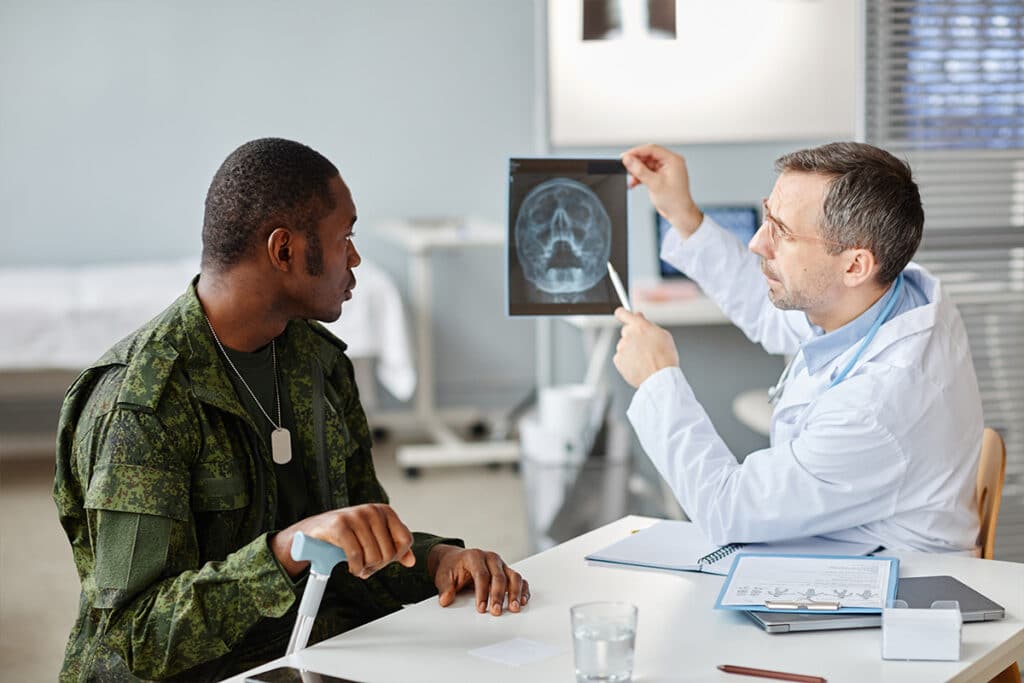
In the aftermath of an accident, physical injuries are often visible and receive immediate attention. However, one type of injury that can go unnoticed or overlooked is a brain injury. These injuries can have profound and long-lasting effects on an individual’s life. In this comprehensive blog post, DLE Lawyers will delve into the crucial topic of recognizing and addressing brain injuries after an impact. We will explore the signs and symptoms of brain injuries, the importance of seeking medical attention, and the legal options available for those who have suffered such injuries.
Understanding Brain Injuries:
Brain injuries, also known as traumatic brain injuries (TBIs), occur when a sudden trauma causes damage to the brain. This trauma can result from various types of accidents, including car crashes, falls, sports-related injuries, and assaults. The severity of a brain injury can range from mild to severe, with symptoms varying depending on the extent of the damage.
Signs and Symptoms:
Recognizing the signs and symptoms of a brain injury is crucial for prompt diagnosis and treatment. Common symptoms may include headaches, dizziness, confusion, memory problems, nausea, and sensitivity to light or sound. In more severe cases, individuals may experience seizures, loss of consciousness, slurred speech, and profound cognitive or behavioral changes.
Seeking Medical Attention:
If you or someone you know has been involved in an accident and exhibits any signs of a brain injury, seeking immediate medical attention is paramount. Even seemingly minor head injuries can have serious consequences if left untreated. A healthcare professional can conduct a thorough evaluation, including neurological tests and imaging studies, to assess the extent of the injury and develop an appropriate treatment plan.
Diagnostic Testing:
Diagnostic testing plays a crucial role in identifying and assessing brain injuries. Common tests may include computed tomography (CT) scans, magnetic resonance imaging (MRI), and electroencephalograms (EEGs). These tests can help healthcare providers visualize brain structures, detect abnormalities, and monitor changes over time.
Treatment and Rehabilitation:
The treatment and rehabilitation process for brain injuries often involves a multidisciplinary approach tailored to the individual’s specific needs. Depending on the severity of the injury, treatment may include medications to manage symptoms, physical therapy to improve motor function, speech therapy to address communication difficulties, and cognitive rehabilitation to enhance cognitive skills and memory.
Legal Considerations:
In addition to focusing on medical treatment and rehabilitation, individuals who have suffered brain injuries may also need to consider the legal implications of their situation. If the injury was caused by the negligence or wrongdoing of another party, such as in a car accident or slip and fall incident, the injured party may be entitled to compensation for their medical expenses, lost wages, pain and suffering, and other damages.
Seeking Legal Representation:
Navigating the legal process after sustaining a brain injury can be complex and challenging, especially for individuals who are also dealing with physical and cognitive impairments. In such cases, seeking legal representation from a personal injury attorney with experience handling brain injury cases is essential. An attorney can advocate for the rights of the injured party, gather evidence to support their claim, negotiate with insurance companies, and, if necessary, litigate the case in court.
Brain injuries can have devastating consequences for individuals and their families, impacting every aspect of their lives. By recognizing the signs and symptoms of brain injuries, seeking prompt medical attention, and exploring legal options with the assistance of a qualified attorney, those affected can take proactive steps towards recovery and obtaining the compensation they deserve. If you or a loved one has suffered a brain injury due to the negligence of another party, don’t hesitate to reach out to the compassionate and skilled team at DLE Lawyers for guidance and support.
